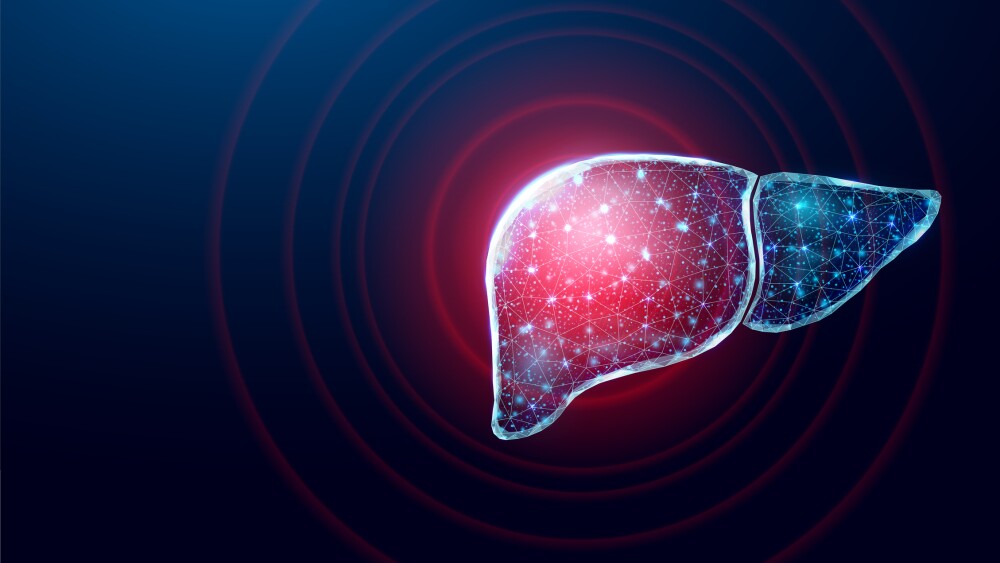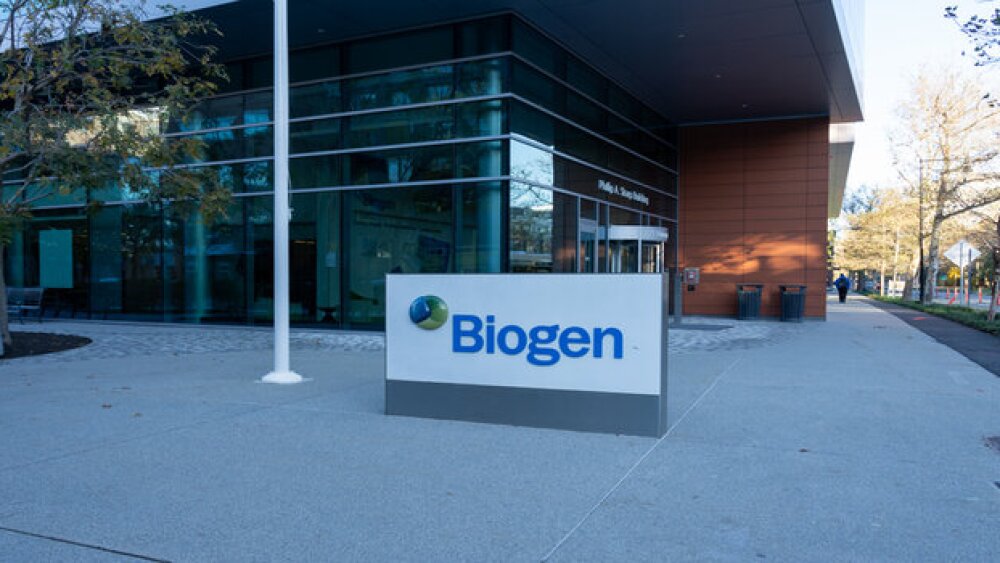Innovent Biologics, Inc. announced that results from the pivotal Phase 2 TRUST-I study conducted in China evaluating taletrectinib, next-generation ROS1 tyrosine kinase inhibitor, were published in the Journal of Clinical Oncology and will be highlighted in an oral presentation at the 2024 American Society of Clinical Oncology Annual Meeting.
SAN FRANCISCO and SUZHOU, China, June 2, 2024 /PRNewswire/ -- Innovent Biologics, Inc. (“Innovent”) (HKEX: 01801), a world-class biopharmaceutical company that develops, manufactures and commercializes high-quality medicines for the treatment of oncology, cardiovascular and metabolic, autoimmune, ophthalmology and other major diseases, announced that results from the pivotal Phase 2 TRUST-I study conducted in China evaluating taletrectinib, next-generation ROS1 tyrosine kinase inhibitor (TKI), were published today in the Journal of Clinical Oncology (JCO) and will be highlighted in an oral presentation at the 2024 American Society of Clinical Oncology (ASCO) Annual Meeting.
Data were reported from 173 patients with advanced ROS1-positive non-small cell lung cancer (NSCLC) who were treated with taletrectinib. Results showed taletrectinib shrank tumors (confirmed objective response rate, cORR, as assessed by an independent review committee, IRC) in 91% of patients who were ROS1 TKI-naïve and 52% of patients who had previously been treated with crizotinib (ROS1 TKI-pretreated). Taletrectinib continued to show robust activity in patients with disease that spread to the brain, as well as in patients with acquired resistance mutations, including G2032R.
After median follow-up of 23.5 months in TKI-naïve patients, median duration of response (IRC-assessed) and median progression-free survival (IRC-assessed) were not reached. After median follow-up of 9.7 months in TKI-pretreated patients, median duration of response and median progression-free survival were 10.6 months and 7.6 months, respectively. Taletrectinib’s safety profile was consistent with previous reports, with a low incidence of neurologic treatment-emergent adverse events (TEAEs).
Based on positive results from the pivotal Phase 2 TRUST-I study, two new drug applications (NDA) of taletrectinib have been accepted by the Center for Drug Evaluation (CDE) of the National Medical Products Administration (NMPA) of China, and granted priority review designations, for first-line and second-line treatment of adult patients with locally advanced or metastatic ROS1-positive NSCLC.
“Current treatments for advanced ROS1-positive NSCLC have significant limitations, and people living with this disease remain in need of new options that are both well tolerated and offer durable responses,” said Caicun Zhou, M.D., Ph.D., Principal Investigator of the TRUST-I study and Professor and Director of the Department of Oncology at Shanghai East Hospital, Tongji University. “These TRUST-I results reinforce taletrectinib’s strong efficacy and favorable safety profile, with longer follow-up, taletrectinib continues to show high and durable overall responses, robust intracranial and G2032R activity, with a low incidence of neurologic AEs. We look forward to taletrectinib benefits ROS1-positive NSCLC patients in the near future.”
Dr. Hui Zhou, Senior Vice President of Innovent Biologics, stated, ” The updated data of the TRUST-I study shows remarkably durable response and meaningful clinical benefits of taletrectinib for ROS1-positive NSCLC patients. We will continue close communications with our partner and regulatory authorities in China, hoping to bring this new generation of targeted therapy to patients with ROS1-positive NSCLC in China.”
About ROS1-positive NSCLC
More than one million people globally are diagnosed with NSCLC annually, the most common form of lung cancer. It is estimated that approximately 1-3% of people with NSCLC are ROS1-positive. Up to 35% of people newly diagnosed with metastatic ROS1-positive NSCLC have tumors that have spread to their brain (brain metastases), increasing up to 55% for those whose cancer has progressed following initial treatment. While people with other types of lung cancer have seen great advances, there has been limited progress for people with ROS1-positive NSCLC who remain in need of new options.
About Taletrectinib
Taletrectinib is an oral, potent, central nervous system-active, selective, next-generation ROS1 inhibitor specifically designed for the treatment of patients with advanced ROS1-positive NSCLC. Taletrectinib is being evaluated for the treatment of patients with advanced ROS1-positive NSCLC in two Phase 2 single-arm pivotal studies: TRUST-I (NCT04395677) in China, and TRUST-II (NCT04919811), a global study. Taletrectinib has been granted Breakthrough Therapy Designations by both the U.S. Food and Drug Administration (FDA) and China’s National Medical Products Administration (NMPA) for the treatment of patients with advanced or metastatic ROS1-positive NSCLC. Based on results of the TRUST-I clinical study, China’s NMPA has accepted and granted Priority Review Designations to New Drug Applications for taletrectinib for the treatment of adult patients with locally advanced or metastatic ROS1-positive NSCLC who either have or have not previously been treated with ROS1 tyrosine kinase inhibitors (TKIs).
In 2021, Innovent and AnHeart Therapeutics, a Nuvation Bio (NYSE: NUVB) Company, entered into an exclusive license agreement for the co-development and commercialization of taletrectinib in Greater China, including mainland China, Hong Kong, Macau and Taiwan.
About Phase 2 TRUST-I Study Results
TRUST-I (NCT04395677) is a pivotal Phase 2, multicenter, single-arm, open-label study evaluating taletrectinib as a monotherapy in 173 patients with advanced ROS1-positive NSCLC in China who either had not previously been treated with a ROS1 TKI (TKI-naïve) or had previously been treated with crizotinib (TKI-pretreated). Almost all patients received 600 mg of taletrectinib orally once-a-day in 21-day treatment cycles. 21% of TKI-naïve patients and 34% of TKI-pretreated patients had received prior chemotherapy, respectively. The primary endpoint of this registrational study was cORR as assessed by IRC, and key secondary endpoints included duration of response (DOR), progression-free survival (PFS), and safety.
As of November 29, 2023, results from TRUST-I as assessed by an IRC showed:
In TKI-naïve patients (n=106):
- 90.6% of patients’ tumors shrank in response to taletrectinib treatment (cORR).
- Taletrectinib shrank brain tumors in 87.5% of people who had measurable central nervous system tumors (n=8; intracranial cORR).
- After median follow-up of 23.5 months, median duration of response and median progression-free survival were not reached.
- At two years, 78.6% of patients who responded to taletrectinib treatment were still responding and 70.5% of patients were still progression-free.
In TKI-pretreated patients (n=66):
- 51.5% of patients’ tumors shrank in response to taletrectinib treatment (cORR).
- Taletrectinib shrank brain tumors in 73.3% of people who had measurable central nervous system tumors (n=15; intracranial cORR).
- Taletrectinib shrank tumors in 66.7% of patients with G2032R mutations (n=12).
- After median follow-up of 9.7 months, median duration of response was 10.6 months and median progression-free survival was 7.6 months.
- At nine months, 69.8% of patients who responded to taletrectinib treatment were still responding and 47.4% were still progression-free.
Taletrectinib’s safety profile was consistent with previous reports. The most frequent TEAEs were increased liver enzymes (increased aspartate aminotransferase: 76%; increased alanine aminotransferase: 68%); diarrhea (70%); vomiting (53%), and anemia (49%), most of which were grade 1 or 2. Incidence of neurologic TEAEs were low; the most common was dizziness (23%), most of which was grade 1. Discontinuations (5%) and dose reductions (19%) due to TEAEs were low.
The JCO publication, “Efficacy and Safety of Taletrectinib in Chinese Patients with ROS1+ Non-Small Cell Lung Cancer: The Phase II TRUST-I Study,” is available at https://ascopubs.org/journal/jco.
The corresponding oral presentation of the same name (Abstract #8520) will be delivered by Wei Li, M.D., a TRUST-I investigator and Professor at the Department of Medical Oncology at Shanghai East Hospital, Tongji University, at the 2024 ASCO Annual Meeting in the “Lung Cancer – Non-Small Cell Metastatic” session occurring today, Saturday, June 1, 2024, at 4:30-6:00 p.m. CT/5:30-7:00 p.m. ET.
About Innovent Biologics:
Innovent is a leading biopharmaceutical company founded in 2011 with the mission to empower patients worldwide with affordable, high-quality biopharmaceuticals. The company discovers, develops, manufactures and commercializes innovative medicines that target some of the most intractable diseases. Its pioneering therapies treat cancer, cardiovascular and metabolic, autoimmune and eye diseases. Innovent has launched 10 products in the market. It has 4 new drug applications under regulatory review, 4 assets in Phase III or pivotal clinical trials and 18 more molecules in early clinical stage. Innovent partners with over 30 global healthcare companies, including Eli Lilly, Sanofi, Incyte, Adimab, LG Chem and MD Anderson Cancer Center.
Guided by the motto, ‘Start with Integrity, Succeed through Action,’ Innovent maintains the highest standard of industry practices and works collaboratively to advance the biopharmaceutical industry so that first-rate pharmaceutical drugs can become widely accessible. For more information, visit www.innoventbio.com, or follow Innovent on Facebook and LinkedIn.
Forward-Looking Statements
This news release may contain certain forward-looking statements that are, by their nature, subject to significant risks and uncertainties. The words “anticipate”, “believe”, “estimate”, “expect”, “intend” and similar expressions, as they relate to Innovent Biologics, Inc. (“Innovent” or “Company”), are intended to identify certain of such forward-looking statements. The Company does not intend to update these forward-looking statements regularly.
These forward-looking statements are based on the existing beliefs, assumptions, expectations, estimates, projections and understandings of the management of the Company with respect to future events at the time these statements are made. These statements are not a guarantee of future developments and are subject to risks, uncertainties and other factors, some of which are beyond the Company’s control and are difficult to predict. Consequently, actual results may differ materially from information contained in the forward-looking statements as a result of future changes or developments in our business, the Company’s competitive environment and political, economic, legal and social conditions.
The Company, the Directors and the employees of the Company assume (a) no obligation to correct or update the forward-looking statements contained in this site; and (b) no liability in the event that any of the forward-looking statements does not materialize or turn out to be incorrect.
SOURCE Innovent Biologics
Company Codes: HongKong:1801, OTC-PINK:IVBIY, HongKong:01801




